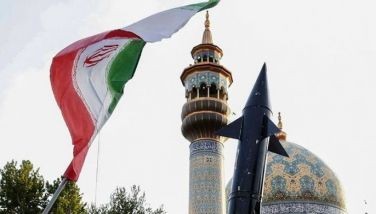Rights group urges Yemen, Saudi action on migrants
SANAA — Human Rights Watch released a new report on yesterday that documents the desperate conditions of people who fled poverty and armed conflict in Africa, only to be abused at the hands of human traffickers who have the backing and active support of some state security officers in Yemen and Saudi Arabia.
The 82-page report, titled "Yemen's Torture Camps: Abuse of Migrants by Human Traffickers in a Climate of Impunity", urged Yemeni and Saudi border officials to do more to prosecute smugglers and to protect migrants from abuse, rape and extortion at the hands of traffickers.
Tens of thousands of Africans make the perilous boat journey from the Horn of Africa across the Gulf of Aden to Yemen, the Arab world's most impoverished nation. From there, the African men, women and children cross illegally into Saudi Arabia in search of work and better living conditions.
The report found that some border guards and security forces in Yemen and Saudi Arabia take bribes to either turn a blind eye, and in other cases to actively play a role in in the trafficking. According to traffickers and migrants interviewed by Human Rights Watch, security officials in Yemen and Saudi Arabia have caught migrants traveling on their own and sold them to traffickers.
The smuggling of migrants is "a multi-million dollar trafficking and extortion racket", the report said. In the northern Yemeni border town of Haradh, 80 percent of the economy subsists off of the illegal trade, said a Yemeni official in the report.
One of the report's lead researchers, Belkis Willie, told The Associated Press that smugglers and migrants say that Saudi border officials are bribed in cash and at other times bribed with qat, the mild stimulant plant that is widely used in Yemen.
The report found that on the Yemeni side, "there appears to be total impunity for security forces involved in trafficking." Additionally, smugglers control dozens of isolated camps that "are well-known to the Yemeni government", where they hold thousands of migrants in appalling conditions. From March to May last year, Yemeni security forces raided some of those camps, but no traffickers or security officials have yet been sentenced, according to Human Rights Watch.
Migrants said they were tortured, hung by their thumbs for hours, burnt and beaten in the camps. Women and boys told the rights group they were raped by the smugglers until a family member, either in their home country or already in Saudi Arabia, wired the traffickers more money.
The report quoted 16 year-old survivor Araya Gebremedihin, who said that when he phoned his mother from one of the Yemeni camps for more money, she said, "I have only one cow and nobody will buy it. If they hurt you, they hurt you. I can't do anything for you."
Yemen's Defense Ministry sent Human Rights Watch a letter saying there is no proof of collusion on the part of Yemeni officials. Similarly, the deputy chief of the Saudi Embassy in Yemen, Hazaa Al-Mutiri, denied the allegations and said that if one security body was complicit in trafficking of migrants, the others working on the border would have reported it.
In just the past year alone, the Saudi government has deported at least 170,000 Ethiopians, most of whom never acquired visas. The United Nations refugee agency said earlier this year that Saudi Arabia also repatriated more than 22,000 Somalis in recent months.
After years of lax enforcement, the Saudi kingdom began cracking down on migrants residing in the country illegally in November 2013. An additional 33,000 people from the Horn of Africa are expected to be sent back to their home countries from Saudi Arabia by summer.
Eric Goldstein, deputy Middle East and North Africa director at Human Rights Watch, said Yemen needs to show "zero tolerance" toward human traffickers who take advantage of people desperate to find work in Saudi Arabia.
"When you see traffickers openly loading people into trucks in the center of Haradh, you know that the authorities are looking the other way," he said.
The rights group said it interviewed 67 people between June 2012 and March 2014 for the report, including migrants, smugglers, health professionals, government officials, diplomats, journalists and activists. All the migrants interviewed said friends from their villages connected them with brokers who promised, for a fee, to arrange their passage to Saudi Arabia through a network of smugglers in each country along the way, the report said.
"The real impetus to write this report is trying to find a way to get this information back to Ethiopia and elsewhere (for people) who think of embarking on this journey," said researcher Willie.
- Latest
- Trending



























